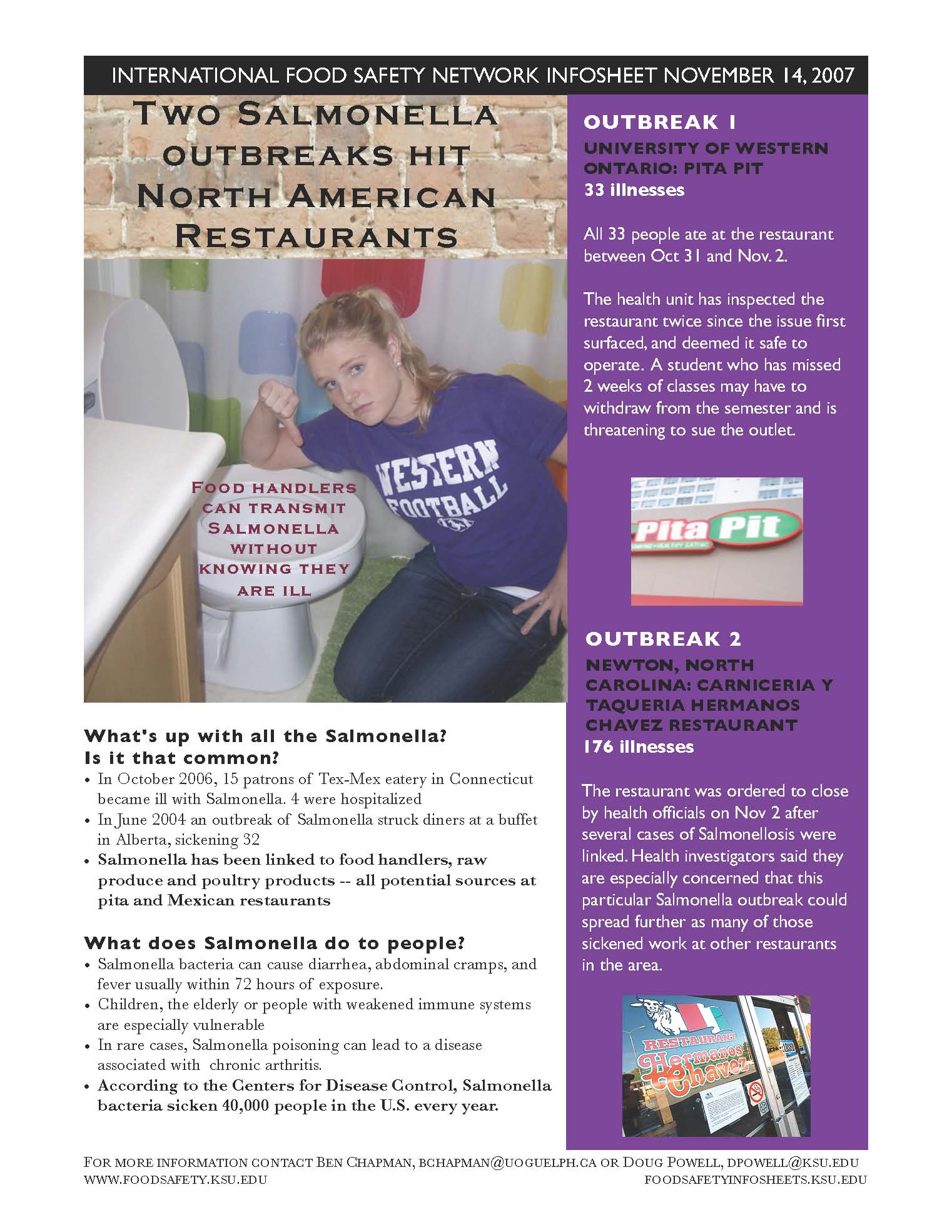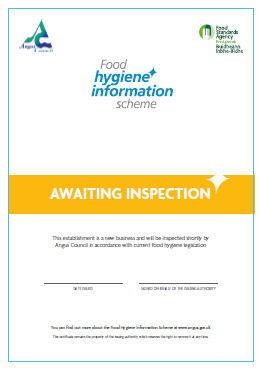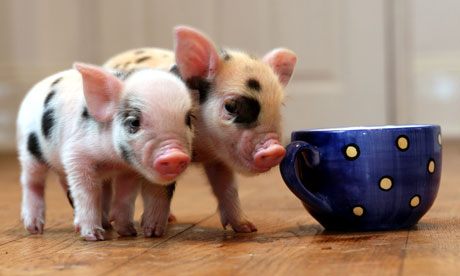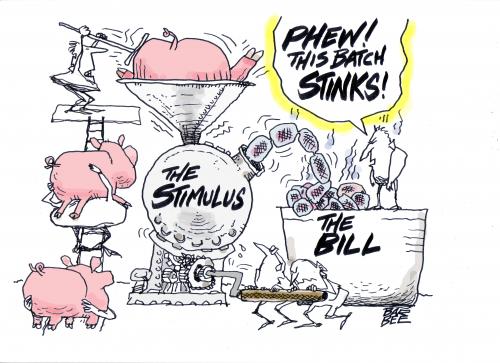
About a year ago, the USA Today ran a series of stories about the microbial safety of food served in the U.S. school lunch program, stating,
“McDonald’s, Burger King and Costco, for instance, are far more rigorous in checking for bacteria and dangerous pathogens. They test the ground beef they buy five to 10 times more often than the USDA tests beef made for schools during a typical production day.  And the limits Jack in the Box and other big retailers set for certain bacteria in their burgers are up to 10 times more stringent than what the USDA sets for school beef.”?
And the limits Jack in the Box and other big retailers set for certain bacteria in their burgers are up to 10 times more stringent than what the USDA sets for school beef.”?
That caused a stir at the time, and the U.S. Department of Agriculture commissioned a report from the National Research Council, which formed a Committee on an Evaluation of the Food Safety Requirements of the Federal Purchase Ground Beef Program, chaired by Gary Acuff of Texas A&M University.
Today, the committee concluded in their published report (it’s not on-line yet) there is, “no scientific basis that more stringent testing of meat purchased through the government’s ground beef purchase program and distributed to various federal food and nutrition programs — including the National School Lunch Program — would lead to safer meat."
In its assessment of AMS’s ground beef purchase program, the committee that wrote the report said validated cooking processes provide greater assurance of ground beef’s safety than would additional testing for pathogens. Testing alone cannot guarantee the complete absence of pathogens because of statistical implications associated with how beef is sampled during testing.
The committee’s analysis of the number of illnesses since 1998 linked with AMS ground beef provided to schools suggests that outbreaks were rare events before AMS requirements became more stringent in February, implying that controls already in place were appropriate for protecting public health. For instance, no recorded outbreaks of E. coli or salmonella associated with AMS ground beef have occurred in more than a decade. Prevention of future outbreaks will depend on eliminating contamination during production and ensuring meat is properly handled, stored, and cooked before it is served, the committee emphasized.
As part of its review, the committee also attempted to compare the AMS specifications with those of large industry purchasers of ground beef. Among purchasers, the committee found considerable differences in testing and safety standards and suspected that the intended use of the ground beef could account for the variations. For example, all raw AMS ground beef is distributed in frozen form, but distributors of fresh meat .jpg) products may require different standards designed to improve shelf life. While AMS safety requirements appear comparable to or more demanding than those of commercial companies on the surface, the lack of information detailing the science used for corporate specifications prevented the committee from making direct comparisons.
products may require different standards designed to improve shelf life. While AMS safety requirements appear comparable to or more demanding than those of commercial companies on the surface, the lack of information detailing the science used for corporate specifications prevented the committee from making direct comparisons.
"The report encourages AMS to strengthen its established specifications and requirements for ground beef by utilizing a transparent and clearly defined science-based process," said Gary Acuff, chair of the committee and professor and director of the Center for Food Safety at Texas A&M University, College Station.
In addition, the report says that some of the requirements were founded on expert opinion and industry practices where the scientific basis was unclear. The committee recommended that AMS base their requirements on standards supported by the International Commission on Microbiological Safety of Foods, the Codex Alimentarius Commission, and the Research Council report An Evaluation of the Role of Microbiological Criteria for Foods and Food Ingredients. It also suggested that AMS analyze data from the suppliers’ bacterial testing to evaluate the safety requirements over time and use statistical methods to set testing sample and lot sizes. Overall, AMS should develop a systematic, transparent, and auditable system for modifying, reviewing, updating, and justifying purchasing specifications.

 food supply. All you had to do, according to Karen Selick, was grow up on a farm, hunt, join the Armed Forces and get a degree in biomedical toxicology.
food supply. All you had to do, according to Karen Selick, was grow up on a farm, hunt, join the Armed Forces and get a degree in biomedical toxicology.  student instantly suffered a stomach upset."
student instantly suffered a stomach upset." and, will be a graduate of biomedical sciences in the veterinary college at Kansas State University. As soon as we turn in the paperwork.
and, will be a graduate of biomedical sciences in the veterinary college at Kansas State University. As soon as we turn in the paperwork. food safety is pretty good. But when someone screws up, it’s pretty bad."
food safety is pretty good. But when someone screws up, it’s pretty bad."
 procedures, which unvocered failures in “food handling, cross contamination, temperature control and general cleanliness.”
procedures, which unvocered failures in “food handling, cross contamination, temperature control and general cleanliness.” businesses are not required by law to do so.
businesses are not required by law to do so. The hygiene status for businesses in Merchant City, City Centre, Anderston, Woodlands, Yorkhill, Hillhead, Dowanhill and Hyndland are available at
The hygiene status for businesses in Merchant City, City Centre, Anderston, Woodlands, Yorkhill, Hillhead, Dowanhill and Hyndland are available at .jpg) nspection is online, for the public view, you certainly are more attuned to making those little changes that are important for food safety."
nspection is online, for the public view, you certainly are more attuned to making those little changes that are important for food safety." set to warn this week that they risk spreading dangerous diseases.
set to warn this week that they risk spreading dangerous diseases. von Bismarck: “If you like laws and sausages, you should never watch either one being made.”
von Bismarck: “If you like laws and sausages, you should never watch either one being made.” are specified in advance, carefully measured out and accurately identified on a label. An inspector from the United States Department of Agriculture visits the plant every day.
are specified in advance, carefully measured out and accurately identified on a label. An inspector from the United States Department of Agriculture visits the plant every day.